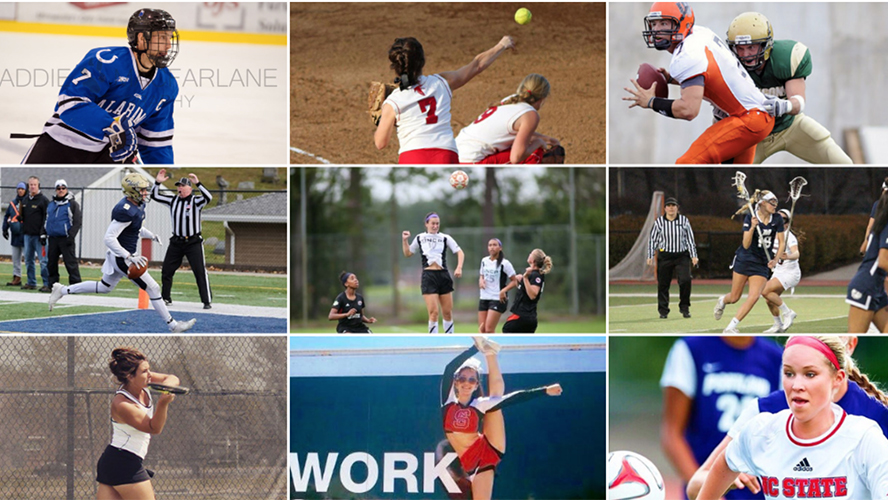An NCAA study finds that college graduates who participated in NCAA athletics enjoy a host of positive long-term life outcomes at greater rates than non-athletes, among them wellbeing.
The study was based on a survey by Gallup of 74,385 U.S. adults with a bachelor’s degree or higher. The new research expands on earlier work in 2016 by delving into comparisons between NCAA membership divisions, similarities and differences by year of graduation, and more.
Gallup measures wellbeing across five domains — purpose, social, financial, community and physical — and classifies respondents on the basis of their answers. This holistic measure captures respondents’ ability to thrive in key elements of the human experience. The research on four-year degree holders shows college athletes are thriving at greater rates than non-athletes in all areas but financial wellbeing, where they mirror non-athletes.
This advantage is consistent across demographic subgroups, persisting across NCAA divisions, graduation eras, genders and races/ethnicities.
Student-Athletes More Likely To Pursue Further Education
Graduates who were NCAA student-athletes (39 percent) are more likely to earn an advanced degree than non-athletes (32 percent). This positive association is particularly apparent for black graduates, with 49 percent of black student-athletes going on to obtain an advanced degree compared with 39 percent of black non-athletes.
Being an NCAA student-athlete increases the likelihood that a graduate will pursue further education. Holding constant all other factors, a logistic regression finds that NCAA student-athletes are 1.3 times more likely to earn a postgraduate degree than non-athletes.
Student-Athletes Especially Likely To Benefit From High-Quality Student Experiences
Gallup research has identified six key undergraduate experiences that correlate strongly with positive work and life outcomes, including strong relationships with professors and mentors and having experiential learning opportunities.
More NCAA student-athletes strongly agree their professors cared about them as a person (35 percent) than non-athletes (28 percent). NCAA student-athletes are also more likely (27 percent) than non-athletes (23 percent) to strongly agree they had a mentor in college who encouraged them to pursue their goals and dreams. And they are slightly more likely (67 percent) to strongly agree they had at least one professor who made them excited about learning than their peers who did not participate in NCAA athletics (65 percent).
“Gallup’s research has established a clear link between the experiences students have on campus and their long-term life outcomes,” said Jessica Harlan, Gallup senior consultant. “For student-athletes, these experiences, which range from close connections with faculty and peers to a built-in support system, set them up for success both during and after college.”
The full study, which explores student-athlete experiences and outcomes in wellbeing, postgraduation and employment outcomes, undergraduate education experiences, attachment to alma mater and perceptions of educational value, is available here.
Photo courtesy Select Group














